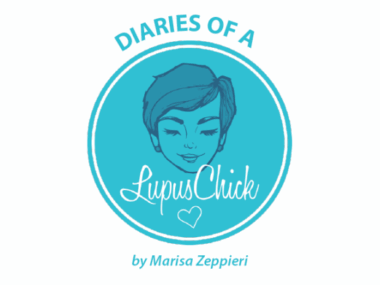I don’t understand lupus pain, but I understand Cori Broadus
Why Snoop Dogg's daughter's treatment decision resonates with me
Written by |

I was staring at the hospital walls, whispering to myself, “I don’t understand this pain.”
Neither did the emergency room physicians and the hospital’s admitting physician. They’d done their best to pin down the “great imitator” using every blood test, scan, and opioid at their immediate disposal. At that moment, before my weeklong stay in the hospital, they had done all they could, but the pain was relentless. I added these doctors’ names to the list of medical minds who could not comprehend lupus and its debilitating attack.
They understood biologically that systemic lupus erythematosus (SLE) causes severe pain. What we didn’t understand were the triggers. What in the disease-spinning world causes such pain and hyperactivates the immune system to the point of stripping a person’s life force?
How is that even possible? We don’t know.
Struggling with treatment fatigue
Until 2011, there were no medications with the exclusive and specific ability to treat SLE. In March of that year, the U.S. Food and Drug Administration approved Benlysta (belimumab) as an intravenous lupus treatment.
According to Drugs.com, Benlysta, a monoclonal antibody therapy, can stop inflammation “by reducing the activity of certain white blood cells called autoreactive B-cells that produce antibodies that attack healthy cells.” This can help relieve symptoms of lupus.
A second monoclonal antibody therapy, Saphnelo (anifrolumab-fnia), was approved to treat lupus in 2021. But multiple other types of therapies are available now, as well. For instance, many lupus patients take immunosuppressants like Imuran (azathioprine), CellCept (mycophenolate mofetil), and Trexall (methotrexate).
Some medications have been repurposed to treat lupus, though they were originally created for other uses. These may include:
- Plaquenil (hydroxychloroquine), which was originally developed to treat malaria
- Chemotherapy drugs like Cytoxan (cyclophosphamide), which are often used to treat cancer
- DHEA, or dehydroepiandrosterone, which can increase hormone levels
- Rituxan (rituximab), which is approved for some cancers and autoimmune diseases.
In addition, doctors may prescribe us corticosteroids, which can help reduce pain and inflammation; gabapentin, which can treat seizures and nerve pain; Zofran (ondansetron), which can prevent nausea and vomiting; cyanocobalamin, which can treat vitamin B12 deficiency; and opioids and muscle relaxers to relieve pain and spasms. Countless milligrams of nonsteroidal anti-inflammatory drugs like naproxen and ibuprofen often complete our daily dosages.
My body is tired.
My arms are bruised and tender from iron and Benlysta infusions.
For about two years, I had monthly, three-hour dates with “Brother Ben,” including an hour waiting for the pharmacist to mix the medicine, which was administered from an IV bag encased in brown plastic. For 115 minutes, the cold biologic flowed into the only vein that would cooperate. Afterward, my mother would drive us 68 miles home, while I dozed off or waffled about some randomness.
Then I’d take my daily medications with whatever dinner I could stomach and pray to see a new day. The next morning, I’d celebrate that lupus hadn’t killed me. For a while, my bloodwork showed hyper disease activity, although the lupus pain and symptoms seemed to temper. The improvement allowed me to switch from infusions of Benlysta to self-administered weekly injections. Then, suddenly, the great wolf prowled out and found joy in clawing pain and inflammation through my body again.
For many months, I messaged doctors, “I don’t understand this pain. I don’t know how I triggered this.” I was mad that I didn’t know and mad that the pain had returned aggressively, despite my treatment regimen.
What’s missing from the conversation
Given these emotions, I can relate greatly to Cori Broadus and her decision to take a new approach to her 18-year lupus journey. As the daughter of rapper Snoop Dogg, her experience has gained international attention and shed light on the complex decisions many lupus patients have to consider. After years of using pharmaceutical treatments, Broadus decided last April to stop taking medications and focus on holistic and homeopathic treatments.
I understand.
Living with lupus usually requires lifelong treatments and adjustments to those treatments when they fail.
Many of us have had enough of the hits and misses — especially after years of consuming double digits of pills as often as three times a day. For a significant period, I took more milligrams of medicine than some people consume in calories. I found this also was the case for many members of my local support group.
It’s easy to understand emotions that vacillate between “I will beat this” and “Forget it. I’m done!”
In more ways and with more frequency than I can count, I’ve wholeheartedly considered the decision to make the courageous and risky decision Broadus did to cut ties with pharmaceuticals and trust my survival to nature, biology, nutrition, and God. But each time I discussed this with my rheumatologist and primary care doctors, their knowledge quelled my frustrations. I advise everyone living with chronic illnesses like lupus to openly discuss any changes with their care team before launching out.
Sadly, Broadus had a severe stroke less than a year after changing her treatment regimen. That is a fate we all fear.
What has been missing is a conversation about how long patients and their doctors earnestly attempt to reach optimal care while contemplating risks and experimenting with remedies.
And while we will continue to consider and reconsider, decline and acquiesce, reject and even plea for more science and more medicine, our only desire is to be able to celebrate a cure. Quickly. So that none of us will face negative consequences for how we decide to treat our bodies.
Note: Lupus News Today is strictly a news and information website about the disease. It does not provide medical advice, diagnosis, or treatment. This content is not intended to be a substitute for professional medical advice, diagnosis, or treatment. Always seek the advice of your physician or other qualified health provider with any questions you may have regarding a medical condition. Never disregard professional medical advice or delay in seeking it because of something you have read on this website. The opinions expressed in this column are not those of Lupus News Today or its parent company, Bionews, and are intended to spark discussion about issues pertaining to lupus.







C Bobbie
This is SUCH a great article! I believe it’s very important for people not living with lupus to read articles like this because it helps us to really understand on a deeper level what lupus is and how it impacts someone even outside of physical health